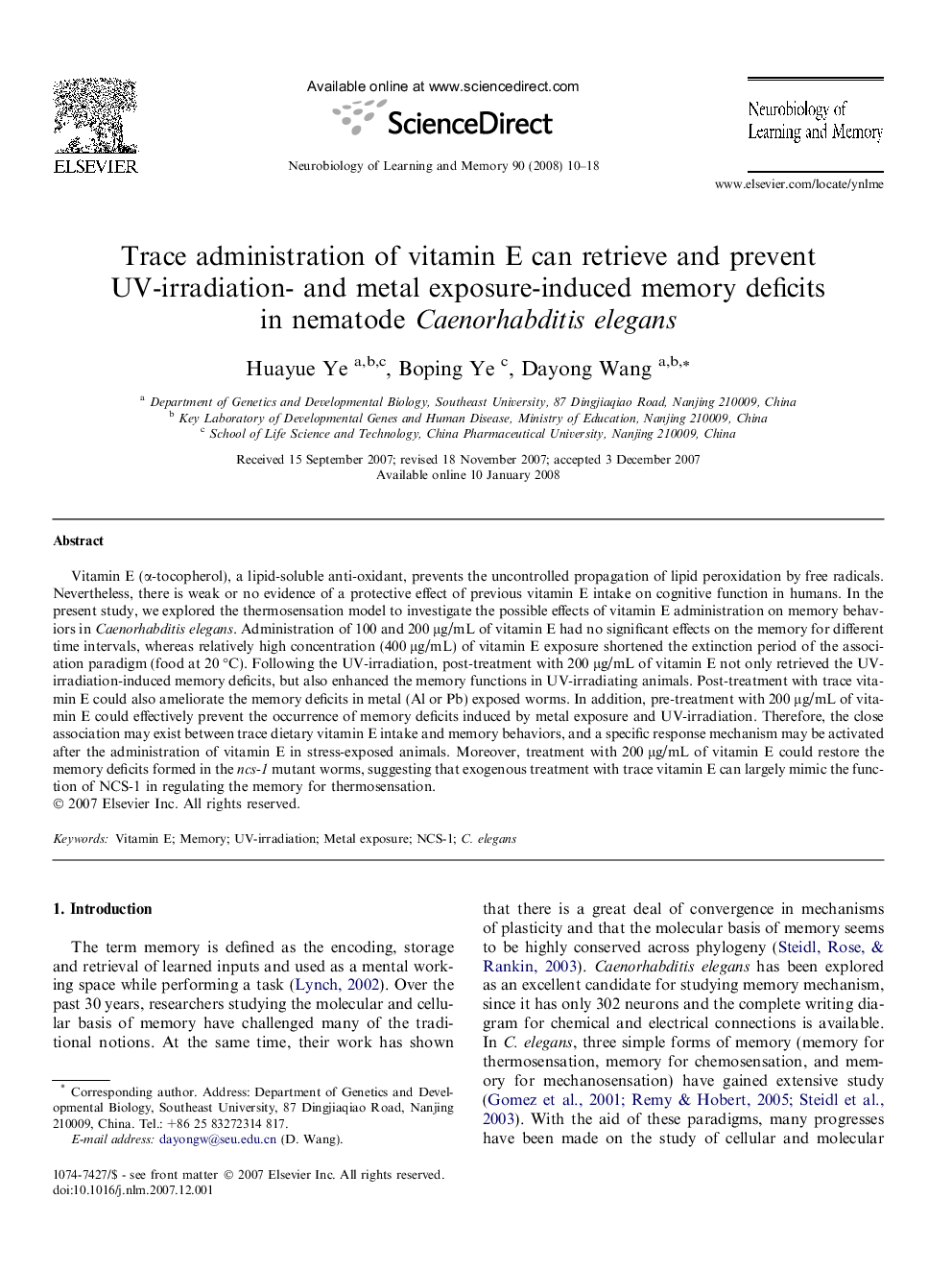| کد مقاله | کد نشریه | سال انتشار | مقاله انگلیسی | نسخه تمام متن |
|---|---|---|---|---|
| 937168 | 1475212 | 2008 | 9 صفحه PDF | دانلود رایگان |

Vitamin E (α-tocopherol), a lipid-soluble anti-oxidant, prevents the uncontrolled propagation of lipid peroxidation by free radicals. Nevertheless, there is weak or no evidence of a protective effect of previous vitamin E intake on cognitive function in humans. In the present study, we explored the thermosensation model to investigate the possible effects of vitamin E administration on memory behaviors in Caenorhabditis elegans. Administration of 100 and 200 μg/mL of vitamin E had no significant effects on the memory for different time intervals, whereas relatively high concentration (400 μg/mL) of vitamin E exposure shortened the extinction period of the association paradigm (food at 20 °C). Following the UV-irradiation, post-treatment with 200 μg/mL of vitamin E not only retrieved the UV-irradiation-induced memory deficits, but also enhanced the memory functions in UV-irradiating animals. Post-treatment with trace vitamin E could also ameliorate the memory deficits in metal (Al or Pb) exposed worms. In addition, pre-treatment with 200 μg/mL of vitamin E could effectively prevent the occurrence of memory deficits induced by metal exposure and UV-irradiation. Therefore, the close association may exist between trace dietary vitamin E intake and memory behaviors, and a specific response mechanism may be activated after the administration of vitamin E in stress-exposed animals. Moreover, treatment with 200 μg/mL of vitamin E could restore the memory deficits formed in the ncs-1 mutant worms, suggesting that exogenous treatment with trace vitamin E can largely mimic the function of NCS-1 in regulating the memory for thermosensation.
Journal: Neurobiology of Learning and Memory - Volume 90, Issue 1, July 2008, Pages 10–18